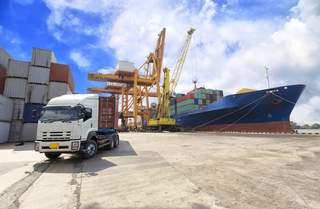
© Fotolia/kamonrat_XL
Level Playing Field in International Competition
To ensure a level playing field, international trade rules and economic partnership agreements between the EU and third countries must be enforced more strongly and the internal market must be protected from unfair competition by third parties. The EU must not foster the international trend toward protectionism, but must take a strategically counteract it.
Open Strategic Autonomy
Since the spring of 2020, there has been intense debate in Europe about the concept of “open strategic autonomy” (OSA) of the European Union, often in the context of global system competition between open market economies and state economies. Further issues in this context include the crisis of the World Trade Organization (WTO), the increased use of unilateral measures, and the growing return to economic nationalism. These debates also focus on a level playing field for European economic operators.
For a resilient and assertive EU trade policy under the guiding principle of open strategic autonomy, which aims to create a level playing field, this should mean:
- Open: Multilateral and rules-based world trade must remain the guiding principle for European trade policy. A reform, strengthening and further development of the WTO is necessary. Particularly in the wake of the Covid-19 pandemic, the EU must set a good example and work against increasing protectionism and for market access.
- Strategic and autonomous: The EU must further strengthen and expand its global leadership role through strategic alliances with key partners. Geo-economic goals must also be taken into account. In addition, the EU’s trade policy must be assertive in order to ensure an international level playing field for European economic operators. This requires effective and balanced instruments to protect European companies from unfair market behavior and make it possible to enforce agreements and international rules. Autonomy must not be confused with autarky. Europe must be able to act in an appropriately self-determined manner, but without jeopardizing the established, efficient and wealth-creating division of labour in the global economy as a whole.
An effective and balanced toolbox
To secure a level playing field, German and European industry depend on effective and balanced trade instruments. Multilateral, plurilateral and bilateral trade agreements as well as unilateral measures by the EU must be used to work toward structures that enable a level playing field. At the same time, it must be ensured that unilateral EU measures in particular are oriented toward the interests of an open market economy. Rules-based world trade must remain the foundation of European trade policy. The EU cannot undermine the rules of the multilateral system, but must work to further develop and strengthen them.
The EU’s toolbox must be able to respond to changing conditions in international trade, such as rising international protectionism or the weakening of international organizations, and ensure a level playing field.
International cooperation for a level playing field
Defensive instruments, however, can only be an additional way of ensuring a level playing field. The focus of the EU’s economic policy must be on strengthening its own economic competitiveness. Only a dynamic and innovative European economy can be globally successful in the long term and act as a role model. This requires market-oriented, industry-friendly and technology-open environment. A particular focus must also continue to be on offensive measures by the EU to open up third markets and promote reciprocal trade. This includes further free trade and investment agreements with important economic partners.
In addition, the EU should pursue plurilateral paths together with other interested states in order to better protect market economies from the competition-distorting effects of state economies. Finally, the EU Commission and the governments of the Member States should use the dialogue with third country state economies to encourage and urge reforms toward a more market-oriented economy.
At a time when the global economy is coming under geopolitical and geo-economic pressure, the EU must fundamentally stand for an open, cooperative and multilateral global economy - while also pursuing its own strategic interests. For German industry, it is important to take advantage of global opportunities, address challenges and minimize risks. This again requires more global cooperation to overcome current obstacles. However, it also requires an effective toolbox to be able to act in a self-determined and assertive manner.



